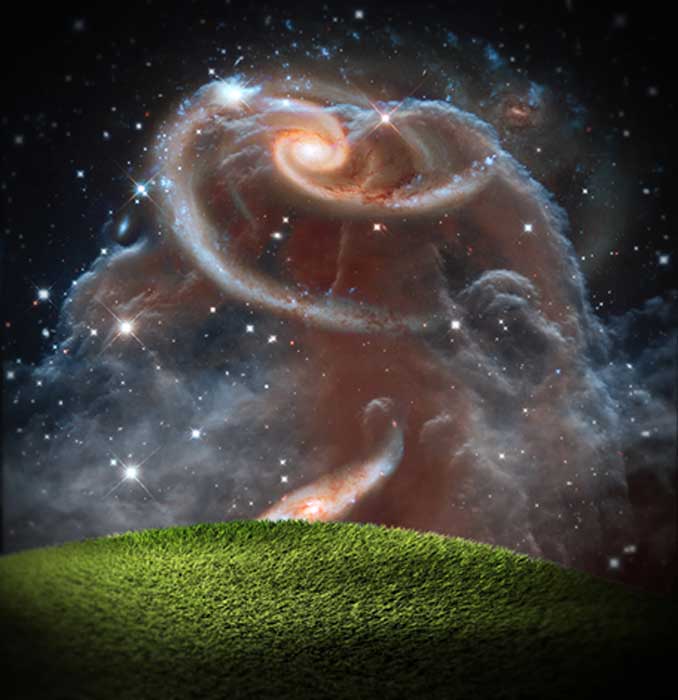
Panpsychism: The Science and Philosophy of an Intelligent Universal Mind
Move over survival of the fittest. Step aside gradual evolution through adaptability and random mutations. There is a new player on the scientific/philosophical block. It is called ‘Panpsychism’, and it threatens to challenge absolutely everything currently known about what the universe is and how it works. On the simplest level, Panpsychism makes the astounding claim that the universe, rather than being a sterile backdrop in which materialistic ‘stuff’ evolves and develops, is instead a web of consciousness that brought about everything that is. This way of thinking is nothing new for those who follow metaphysics and some ancient religious systems. The idea of an Akashic Field has been around for millennia. But for scientists, operating within the parameters of mathematics and the scientific method, to give such a theory a name and subject it to peer reviewed papers, is a breakthrough. What Panpsychism says is that the universe itself may be self-aware.

Meditate Zen Meditation Sitting Buddhist Monk (CC0)
Metaphysics meets Science
Zen masters for thousands of years have said that all is one, but to give this concept official sounding labels such as ‘entanglement’ and ‘proto-consciousness fields’ is quite shocking. It means that lines of inquiry which have traditionally moved along two separate roads, called metaphysics and science, may have now merged into one superhighway.
Christof Koch, of the Allen Institute for Brain Science, a Seattle-based, independent, nonprofit medical research organization dedicated to accelerating the understanding of how the human brain works, has been designing experiments which define consciousness. His results indicate that biological organisms are conscious if they are capable of changing their behavior when confronted by new situations. But if a system is able to act upon its own state and, in effect, determine its own fate, it is conscious even if it is not biological or organic.

Magical Galaxy illustration. (Public Domain)
Although he has yet to present his ideas in the form of a formal ‘Theory of Mind’, it is still a fascinating conjecture that has many theoretical physicists re-reading traditional religious systems of thought and wondering if the ancients intuited what modern mathematicians have finally deduced. With more experimentation, Panpsychism might produce repeatable observations that could lead to fully-developed scientific theories about the nature of a universe that intentionally produced mankind. It might also help understand man’s unique place in a cosmos that has developed biological entities which are able to comprehend and become conscious of themselves as separate and individual beings.
- Science Versus Religion on Our Ancient Origins: What if They’re Both Wrong?
- Music, Math, Megaliths and the Dawn of Humanity
- The Evolution of Wisdom: A Study of the Evolution of Perception as Understood by Ancient Religions
Differentiating Panpsychism
To fully understand what this means, one needs to first differentiate Panpsychism from other traditional systems of religious thought. The first systematized religion was very probably what is now called ‘Animism’. This was the belief that everything is animated by fully-developed, conscious, and intelligent spirits that eventually came to be known as gods. This differs from Panpsychism in that panpsychists shy away from the idea that human-like, and especially god-like, attributes live within disparate objects found in nature. The distinction is important. When the ancient Greeks, for instance, wrote that ‘everything is alive’, it sounds like Panpsychism. But they still viewed the universe as a stage upon which animated entities and objects played their part, rather than saying that the universe itself was the author of the play.





